(…Yes, there’s a Wrong Kind.)
If there’s one big place to easily make mistakes in setting up scene, it’s in the beginning pages of a novel. Of course, as story-tellers, our desire is to grip our readers with something memorable in those first five pages — something dramatic. We’ve all been told how important it is to make an impact at the beginning if we want to keep our readers turning pages. Unfortunately we miss the mark wide when we mistake melodrama for real drama.
Drama is conflict. Real drama can be emotional conflict, physical conflict, or spiritual conflict.
On the other hand, melodrama is what some writers compose while trying to show conflict. But melodrama isn’t true drama. Why? Because melodrama doesn’t start with the core of a character’s needs and desires. Instead, melodrama merely sticks danger or sorrow or neediness into a scene by dealing mostly with outside influences surrounding the character, or by telling us what the character feels, or by letting the characters actions and responses to crisis go over the top. None of these things touches readers’ hearts in places that make them care deeply about the characters. Melodrama usually, though not always, rears during physical conflict.
True drama touches the reader’s emotional core by giving the characters a strong desire. Did I say strong? Make that a desperate desire. They want something so intensely they’ll do anything to get it. Their desire could be something tangible, or emotional, or both. In fact, there are usually several things a character wants, though maybe not all right away. They are things readers can relate to: love, salvation, health, safety, victory, family, peace, money, equality, time, honor, a home, and the list goes on. Real drama results in the way those desires are presented — the conflict. So how do we introduce the conflict?
For some reason, it’s easy to think we must force those needs or wants into the forefront with purple prose (see the tutorials on that subject) or spectacular external elements. Sometimes mayhem – even mayhem on a universal order, may be involved, but it’s not the mayhem itself that drives drama. It’s the characters’ intense desires. Again, exposing those desires with flowery language or excessive emotion pasted into the scene will only have a melodramatic affect unable to make a reader care. It must come from some deep place in the character’s makeup.
Does your WIP open with drama or melodrama?
Your work-in-progress may be opening with melodrama if you’ve relied on fiery crashes, bloody murder, and screaming arguments to create the conflict rather than unearthing the psyche of the character and allowing the conflict to stem from some deeper place within. It may be melodrama if you are using a lot of words, especially adjectives or adverbs, that don’t truly build emotion in the reader, but only try to pack the sentences with applied emotion. And on that note, cut out the exclamation points. Did you hear me? Cut out the exclamation points! You only use them if your character is shouting… loudly… vehemently. And you use them sparingly.
Think of drama vs. melodrama this way: With real drama, less is more — less charged up language, less explaining things to the reader, less mayhem. The drama takes place on a sub-level that the reader feels. Drama is usually very subtle, even in the midst of larger action. Drama is revealed in how the character reacts to the crisis he is facing.
For instance, imagine a story about a wagon train scout who has been leading trains west for four years, hoping for the day he might find his little sister who’d been orphaned and sent west while he was away fighting the Civil War. After a day’s ride out to scout, he returns to his wagon train to find the entire company has been killed or abducted by warring Indians. Among the missing are a young woman and her son.
In a melodramatic scene, we might find him cursing and shouting at God. He might swear to scalp every Indian he meets. Maybe he’ll even verbalize his indecision — should he try to rescue the woman and boy and maybe get them all killed, or leave them to their fate and continue the search for his sister?
Is that the greatest way to reveal his desires or inner turmoil to the reader? In a more dramatic scene, he might pull out his sister’s last, creased, dirty letter, the one he’s been carrying with him for four years. He’ll once again read over childish scrawlings begging him to come home. Then he’ll tuck it away as he turns his flint-like gaze in the direction the Indians’ ponies have gone, his jaw set in a hard twist.
Exercise:
- Re-examine your opening pages. Drama or melodrama — which have you?
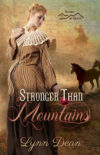
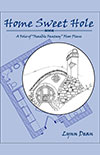

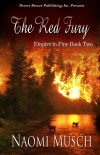
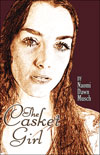
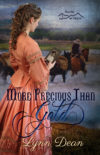
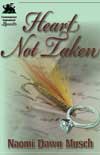

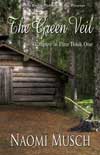







Speak Your Mind
You must be logged in to post a comment.